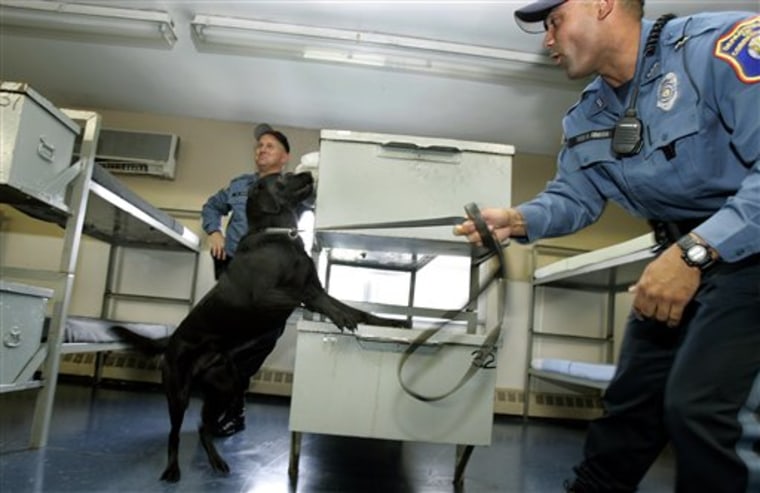As Congress considers whether to allow state prisons to install cell phone jamming devices, New Jersey is grappling with ways to stop inmates from running criminal enterprises from behind bars.
On Tuesday, state Attorney General Anne Milgram announced charges against 35 inmates indicted for cell phone possession, a crime that carries a maximum sentence of five years in prison and a $15,000 fine.
The problem is so bad, in once instance law enforcement officers were able to intercept a conference call among gang members.
"Two inmates in different prisons and a third inmate in a county jail were plotting retaliation against another gang member," Milgram said. "This is not what should be happening when we put criminal behind bars."
Of the 35 inmates indicted on Friday, 25 are reputed gang members, she said.
Under current law, the FCC can only allow federal agencies — not state or local authorities — to jam cell phone signals. Phone industry representatives object, saying that jamming signals could interfere with legitimate service and emergency calls.
The legislation in Congress would change the law to allow states to use the jammers, and a vote in the U.S. Senate could come this fall.
But states aren't waiting. Many have started testing electronic cell phone detection technology and several, like Virginia and New Jersey, have started to use specially trained dogs to sniff out the phones.
New Jersey prison officials also have stepped up use of noninvasive scanner chairs to search inmates returning from work details. The state has taken other measures — such as removing vending machine from visitor areas so family members can't pass the phones in snack packs — to stop inmate access to the devices.
Still, around 400 cell phones have been confiscated during the past year, along with 126 chargers and nine cell phone batteries. Last week alone, officers found two phones, three chargers and a wireless Bluetooth device.
Phones have been found in light fixtures, Bibles and body cavities. Some inmates have tried unsuccessfully to conceal them in peanut butter jars to fool the dogs.
"They pick up the scent quickly," said Sgt. William Crampton.
